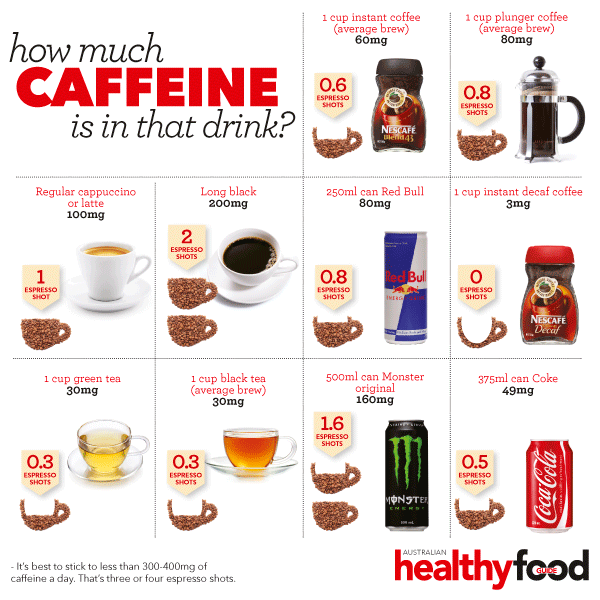Caffeine is like a valued companion in today’s fast-paced environment, helping us get through the day. From the first cup of coffee in the morning to the energy drink we go for in the afternoon when we are tired, it is clear why caffeine is so popular. However, great power brings great responsibility. It’s crucial to recognize the fine line between the right amount and too much.

So, let us take a deep dive into the world of caffeine. Exploring its effects on our bodies and how to know when we have reached our limit.
What is Caffeine?
Let’s start with the basics.
Caffeine is a natural stimulant found in various sources, including coffee beans, tea leaves, cocoa beans, and certain nuts. When we consume this, it quickly gets absorbed into our bloodstream and travels to our brain. There, it blocks the action of adenosine, a neurotransmitter responsible for promoting relaxation and sleepiness. By blocking adenosine, it keeps us awake and alert, making it easier to concentrate and stay focused.
Recommended Daily Intake
While it can be a lifesaver when you need a boost, moderation is key. Health experts recommend that most adults limit their caffeine intake to about 400 milligrams per day.

To put that into perspective, it is roughly equivalent to four cups of brewed coffee, ten cans of cola, or two energy shot drinks. However, it is essential to remember that individual tolerance levels can vary based on factors such as age, weight, genetics, and overall health. Some people may feel jittery or anxious with even small amounts, while others can handle larger doses without any issues.
Effects of Excessive Consumption
Having too much can lead to a range of unpleasant side effects, both in the short term and the long term. In the short term, excessive caffeine consumption can cause symptoms such as jitteriness, headaches, dizziness, increased heart rate, and difficulty sleeping. These effects can interfere with your daily activities and overall well-being.

Consistently exceeding your body’s caffeine limit can lead to future health issues. These include high blood pressure, heart disease, and gastrointestinal issues. It can also lead to dependency, where you rely on it to function normally and experience withdrawal symptoms when you try to cut back.
For more information on this, check here
Signs of Caffeine Overconsumption:
So how do we know if we have had too much caffeine? Paying attention to our bodies is key. Common signs of overconsumption include:
- Feeling jittery or restless
- Experiencing headaches or migraines
- Having trouble falling asleep or staying asleep
- Feeling anxious or irritable
- Noticing a rapid or irregular heartbeat.
If you are experiencing any of these symptoms after consuming caffeine, it may be a sign that you have reached your limit and should consider cutting back.
Finding Your Limit
Finding the right balance when it comes to caffeine consumption is a personal journey. If you think you might be consuming too much caffeine, try gradually reducing your intake and see how your body responds. Keep track of how much caffeine you are consuming each day and pay attention to how you feel. It may take some trial and error to find the perfect balance that works for you, but it is worth it in the long run.
Caffeine can be a helpful tool for staying awake and alert when we need it most. However, it is essential to use it wisely and avoid overdoing it.
A Word From HealthFacts to You
By understanding the effects of caffeine on your body and paying attention to individual tolerance levels, you can enjoy the benefits without risking your health.
If you are unsure about how much caffeine is right for you, don’t hesitate to speak with a healthcare professional for personalized advice. Remember, when it comes to caffeine, moderation is key.
Till next time, Stay healthy!









